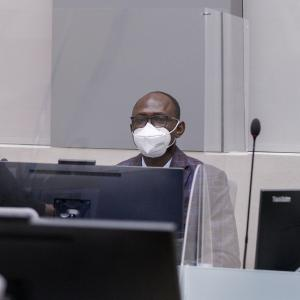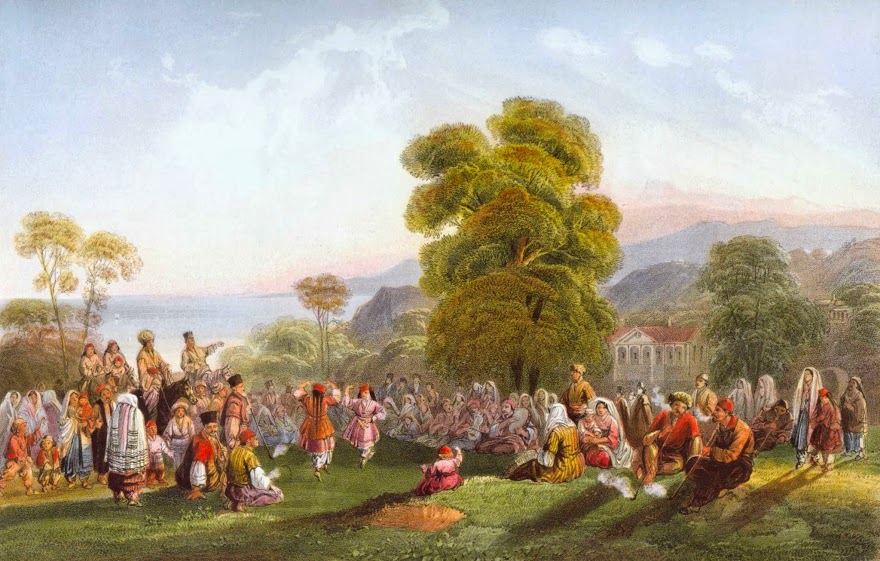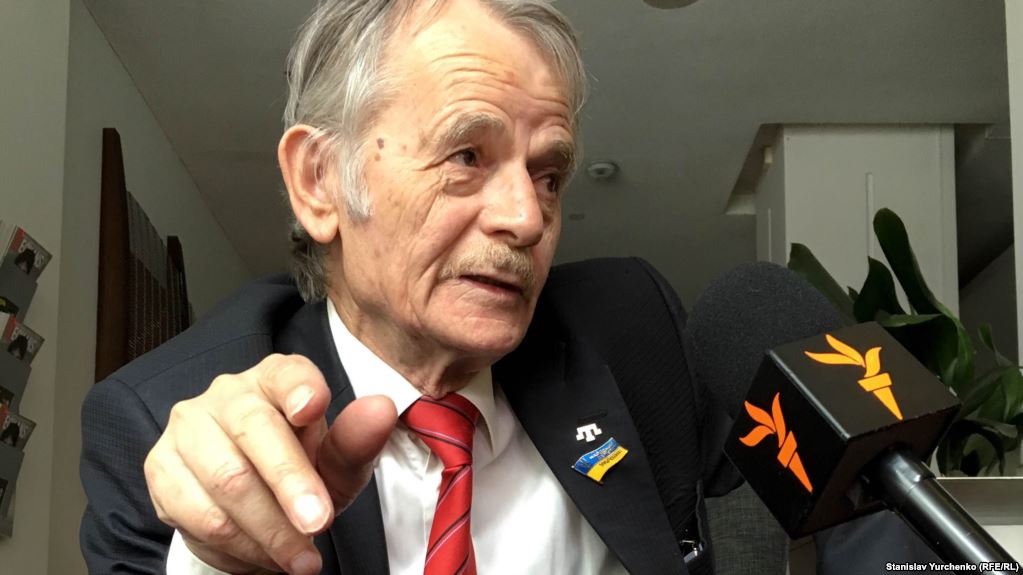Since the start of the armed aggression in 2014, Russia has committed numerous war crimes and crimes against humanity in Ukraine. One of the most affected groups includes individuals who have been forcefully deported or displaced. According to the US Department of State, within the first six months of the invasion, an estimated 900,000 to 1.6 million Ukrainians, including thousands of children, were forcibly deported. This alarming trend continues to worsen, mainly due to the Kremlin's decision to deport residents who refuse to obtain Russian citizenship in the occupied territories.
Extensive evidence supports the occurrence of deportation and forced displacement of Ukrainians, as corroborated not only by Ukrainian authorities but also by reputable international organizations and foreign researchers, such as the Human Rights Watch, the Laboratory for Humanitarian Studies of Yale University, the "New Lines Institute, and the Raoul Wallenberg Center, among others.
Deportation or forced displacement falls under the categories of both crimes against humanity (art. 7) and war crimes (art. 8), according to the Rome Statute. Crossing an international border forcibly is considered deportation, while displacement within a country's borders is termed forced displacement.
These actions occur when individuals are compelled to leave a place where they had a lawful presence without any legitimate basis under international law. International law permits forced displacement only when necessary for the person's safety, or military purposes, and for a limited duration.
To qualify this crime under Article 7(1)(d) of the Rome Statute as a crime against humanity, the following elements must be established:
- The perpetrator forcefully deported or relocated individuals to another location, using eviction or other coercive methods that violate international law. The term "forcible" encompasses physical force, threats, coercion, fear, detention, psychological pressure, or abuse of power. It involves creating a situation of coercion to achieve displacement.
- Such a person or persons were lawfully present in the area from which they were deported or relocated.
- The executor was aware of the factual circumstances that testified to the lawfulness of such a presence.
- The act was committed as part of a full-scale or systematic attack on the civilian population.
- The accused knew that the act was part of a full-scale or systematic attack on the civilian population or intended to make it part of such an attack. This element should not be interpreted as evidence that the perpetrator was aware of all the characteristics of the attack, or the precise details of the plan or policy of the state or organization. As to intent, in the case of an attack that becomes widespread or systematic, the subjective party is present if the perpetrator intended to facilitate such an attack.
To qualify a deportation or forcible transfer under Article 8(2)(a)(vii) of the Rome Statute as a war crime, the following elements must be established:
- The executor has deported or relocated one or more persons to another state or other place.
- Such a person or persons were protected by one or more Geneva Conventions of 1949.
- The performer knew the factual circumstances indicating this protection status.
- The act took place in the context of an international armed conflict and was related to it.
- The executor was aware of the actual circumstances that indicated the existence of an armed conflict.
Past court decisions shed light on what could await Russian war criminals
The International Criminal Court (ICC) is investigating several cases involving forced displacement as a crime against humanity. These cases include Prosecutor v. Maxime Jeoffroy Eli Mokom Gawaka, suspected of war crimes in the Central African Republic; Prosecutor v. Ahmad Muhammad Harun, suspected of war crimes in Darfur, Sudan, between 2003 and 2004; and Prosecutor v. Ali Muhammad Ali Abd-Al-Rahman, accused of war crimes in Darfur, Sudan, during the same period. The last two defendants are believed to have forcibly displaced over 60,000 local residents at different times.

The illegal deportation and relocation of Ukrainian children to Russia gained significant global attention. Arrest warrants were issued against President Vladimir Putin and Maria Lvova-Belova, by an ICC judge for their suspected involvement in these crimes.
According to the Office of the Prosecutor General, as of 1 June 2023, over 19,500 cases were officially registered. However, the actual number could be much higher due to challenges in identifying and maintaining contact with affected families, name changes, and simplified adoption processes.
The Parliamentary Assembly of the Council of Europe recognized that the documented evidence of these deportations and forced relocations align with the criteria for the crime of genocide outlined in Article 6 of the Rome Statute. However, proving the intent to deliberately destroy a group based on national, ethnic, racial, or religious grounds is necessary for prosecuting this crime.
PACE recognizes forced deportation of Ukrainian children to Russia as genocide
It is essential to highlight that the leader of the aggressor country openly denies the existence of the Ukrainian people and actively seeks to destroy Ukrainian statehood through military means. In response, the [Parliament] of Ukraine adopted a resolution that recognized Russism [Russian Fascism] as the underlying ideology and practice behind the state policy of the Russian Federation. Ukrainian deputies have called upon the international community to support them and take concrete actions to hold the military-political leadership of Russia accountable for their acts of aggression, war crimes, crimes against humanity, and genocide against Ukraine and its people.
Ukraine is actively investigating these crimes and has introduced a draft law in the [Parliament] to amend the Criminal Code, explicitly addressing the forcible relocation of individuals outside Ukrainian territory. Investigations are underway under Article 438 of the Criminal Code, which deals with violations of laws and customs of war, with a total of 88,669 registered crimes. The first court verdicts have been issued, such as the sentencing of a judge who unlawfully assumed the role of "Chairman of the Armenian City Court of the Republic of Crimea" and was involved in the deportation of a Crimean citizen. This judge received a 10-year prison sentence in absentia.

Ukraine is actively working to bring back its deported citizens and ensure justice for the crimes of deportation and forced relocation. International organizations are lending their support in repatriating Ukrainian children. By the end of March 2023, 327 children have already been successfully returned, as reported by the Commissioner of the President of Ukraine for Children's Rights, Daria Herasymchuk.
Apart from children, there have been reports of forced relocation of vulnerable individuals, such as people with disabilities, from social protection institutions in the temporarily occupied regions of eastern and southern Ukraine. However, the International Committee of the Red Cross can only search for these individuals upon request from their parents or guardians. Ukraine now needs to establish a mechanism to bring back single individuals and people with disabilities who are under the care of these institutions, as outlined in Article 66 of the Civil Code of Ukraine.
Hoping for cooperation from Russian authorities to provide unrestricted access, accurate information, and safe return for Ukrainian citizens is futile.
Therefore, it is crucial to employ every available method to bring back all citizens, assure displaced individuals of no legal repercussions, and support their psychological and social integration upon returning to Ukraine.
Ukraine and its partners need to raise awareness and seek international support to facilitate the return of adults who were forcibly deported or displaced, document these incidents, and widen the scope of Russians eligible for International Criminal Court arrest warrants. This includes State Duma deputies who legalized forced deportation through amendments to the federal constitutional law "On martial law," allowing Putin to issue decrees for resettling residents from occupied Ukrainian regions to territories unaffected by martial law.
Related:
- Deportation in the 21st century: what you need to know about Russia’s crime in Ukraine
- Deportation as a crime: how human rights defenders document evidence and help Ukrainians escape Russia
- Russians reportedly deported about 700,000 Ukrainian children since 2014 – Russia’s parliament member
- Russia deported 20,000 Ukrainian children, including 4,500 orphans – official
- PACE recognizes forced deportation of Ukrainian children to Russia as genocide
- Ukraine adopts law that condemns Russian Imperial policy and decolonizes toponyms





